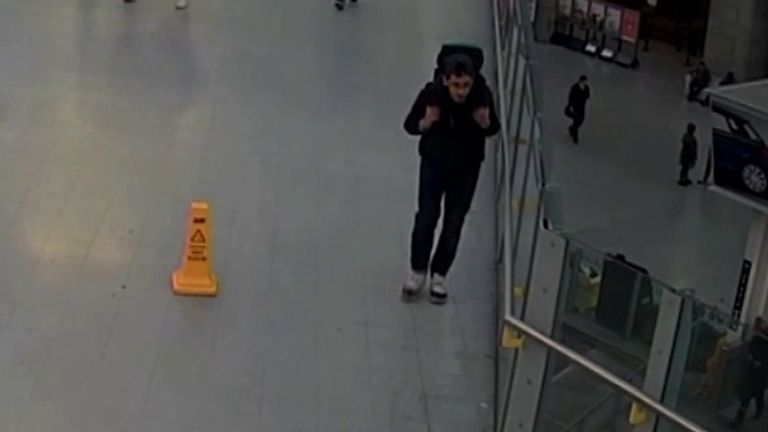Manchester Arena inquiry: Bomber Salman Abedi 'addicted to painkillers and had anger management classes'
The inquiry is told Salman Abedi hit a woman when he was 17 and that the case was dealt with via "restorative justice".
Tuesday 8 December 2020 14:47, UK
The Manchester Arena bomber was addicted to painkillers and had attended anger management classes after punching a woman at college, the inquiry into the attack has heard.
Salman Abedi also spent time in Libya with an Islamist group called the February 17 Martyrs Brigade and attended raids in the hunt for supporters of the overthrown dictator Muammar Gaddafi.
Detective Chief Superintendent Simon Barraclough, the senior investigating officer, gave details of Abedi's intelligence subject profile.
He was said to have been involved in "minor criminality" from 15 after stealing a mobile phone with a friend when still at Burnage College.
The phone was recovered and the victim did not want to press charges, the inquiry was told.
In November 2011, when still 16 and too young to drive, he was found guilty of driving offences.
A year later, on 11 October 2012, aged 17, he punched a woman at Manchester College, the inquiry heard.
The case went through a process of "restorative justice" in accordance with the victim's wishes and the police officer involved noted that Abedi had admitted the offence and was "very sorry".
The notes said he was attending anger management classes but further investigations after the attack did not reveal any more about those classes, the inquiry heard.
A few weeks later, on 29 November 2012, Abedi was stopped for stealing a pair of tracksuit bottoms from Sports Direct in Manchester's Arndale Centre.
He was convicted of handling stolen goods and his fingerprints were taken from his left hand, because his right hand was in plaster, which helped to confirm his identity after the bombing.
Sir John Saunders, the chairman, stopped the inquiry counsel from revealing the criminal records of Ismail, his older brother, and Ramadan, his father, other than to say they were "lightly convicted".




